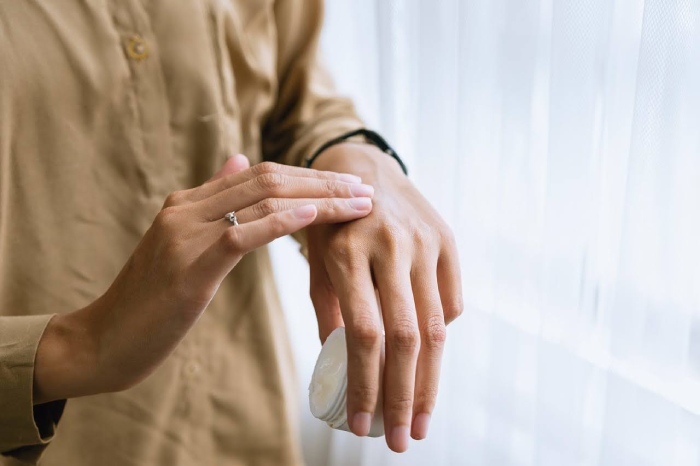Selecting the correct dermatological skin care product is essential for maintaining skin health and managing conditions. With numerous products on the market, it becomes quite tough for both patients and healthcare professionals to figure out which ones are best for each skin. This article offers a detailed, clinical guide to aid in choosing appropriate dermatology skin care products based on specific skin types. The aim? Ensuring choices are both safe and effective.Additionally, we’ll explore the best skin care routine for women and provide insights from the top dermatologist in Pune.
Understanding Skin Types and Dermology Skin Care
Before picking a product, it’s crucial to understand the different skin types. Skin type is mainly determined by how much sebum (oil) your skin produces. This can depend on genetic factors, exposure to the environment, and various lifestyle choices. Common skin types include:
Best Skin Care Products Dermatologist: To effectively address each skin type, it’s important to choose products recommended by dermatologists. These products are formulated to cater to specific skin needs and are often the most reliable for achieving optimal skin health.
1. Normal Skin
Balanced moisture levels, small pores, even tone, and few blemishes define normal skin. It’s neither too oily nor too dry.
2. Oily Skin
Too much sebum production makes the skin shiny with larger pores & more prone to acne and blackheads.
3. Dry Skin
Not enough sebum leads to a lack of moisture. This can cause a rough texture, flaky patches, and sometimes sensitivity.
4. Combination Skin
Has traits of both oily & dry skin, often featuring an oily T-zone (forehead, nose, chin) & drier cheeks.
5. Sensitive Skin
Easily irritated by environmental factors or certain ingredients. This leads to redness, itching, and inflammation.
6. Best Skin Care for Aging Skin
For those with combination skin, especially as they age, it’s crucial to select products that balance both hydration and oil control. The best skin care for aging skin helps to address fine lines and wrinkles while managing varying oil levels across different areas of the face.

Assessing Individual Skin Needs: The Role of Dermology Skin Care
Beyond knowing your skin type, a thorough assessment of individual needs is vital. This includes evaluating any dermatological conditions like acne or rosacea. One’s age, hormones, lifestyle, and environment all play a role and affect how the skin behaves & responds to products.
Best Skin Care Products Dermatologist
Consulting a dermatologist can help in selecting the best skin care products suited to your unique needs.
Best Skin Care Routine for Women
Tailoring a routine that addresses specific concerns, including hormonal changes and environmental factors, is essential for maintaining healthy skin.
Key Considerations in Skin Assessment
- Hydration Level: The moisture balance in your skin determines which moisturizer or hydrator is right.
- Sebum Production: Knowing if your skin produces too much or too little oil helps select cleansers & moisturizers.
- Barrier Function: Assessing the skin barrier’s integrity is crucial, especially for those with eczema or chronic dryness.
- Sensitivity: Finding out triggers for irritation helps avoid potential allergens or harsh ingredients.
- Photodamage: Considering sun exposure & damage plays into choosing products with sunscreens or antioxidants.

The Importance of Ingredients in Skin Care Products
The power of any skincare item lies largely in its Ingredients. Knowing them clinically aids informed decisions. Here are some common active ingredients and their clinical relevance:
- Retinoids: Vitamin A derivatives like tretinoin & retinol help manage acne, hyperpigmentation & aging signs by promoting cell turnover & collagen production but can irritate sensitive skin at first.
- Hyaluronic Acid: A strong hydrator that draws in moisture and is fit for all skin types— especially dry or dehydrated ones—helping maintain elasticity and smoothness.
- Niacinamide: A form of Vitamin B3 offering multiple benefits such as reducing inflammation & regulating oil production; ideal for oily or acne-prone skins.
- Salicylic Acid: An oil-soluble beta-hydroxy acid that penetrates greasy skin well and clears out pores; often used in acne treatments.
- Ceramides: These lipids restore & keep up hydration in dry & sensitive skins by supporting the barrier function.
- Antioxidants: Items like Vitamins C & E plus green tea extract protect against oxidative stress caused by free radicals—vital in anti-aging products.
- Sunscreens: Broad-spectrum options safeguard against UVA and UVB rays to prevent photodamage—with physical sunscreens being preferred for sensitive skins due to lower irritation risks compared to chemical sunscreens.
Matching Skin Types with Suitable Products
After assessing your skin type & needs comes matching these with suitable items:
1 . Normal Skin
- Cleanser: Gentle foaming or cream-based.
- Moisturizer: Light lotion with hyaluronic acid.
- Treatment: Daily broad-spectrum sunscreen with antioxidants.
2 . Oily Skin
- Cleanser: Gel-based or salicylic acid cleaner.
- Moisturizer: Oil-free moisturizer with niacinamide.
- Treatment: Products having retinoids or salicylic acid for handling acne. 3 . Dry Skin:
- Cleanser: Cream-based hydrating one.
- Moisturizer: Rich cream laden with ceramides & hyaluronic acid.
- Treatment: Humectants like glycerin; avoid alcohol-based items.
4 . Combination Skin
- Cleanser: A balancing one managing both areas effectively.
- Moisturizer: Light gel for oily parts; richer cream where dry.
- Treatment: Spot treatments like salicylic acid for the T-zone.
5 . Sensitive Skin
- Cleanser: Fragrance-free hypoallergenic option.
- Moisturizer: Barrier-repairing cream with ceramides.
- Treatment: Soothing agents like aloe vera while dodging known irritants (alcohol/strong acids).
Importance of Patch Testing
Whatever your type may be—they advise patch testing before fully adopting any new item into your regimen thus avoiding allergic reactions/irritations early on by trying it out on smaller areas such as inner forearm/behind ear observing 24–48 hours prior full-face use proving safety this way!
Consulting a Dermatologist
Even though over-the-counter stuff’s available widely folks facing particular conditions or adverse reactions ought check-in with dermatologists because they offer personalized guidance stronger prescriptions suitable regimens along diagnostics figuring complex issues towards apt solutions!
Conclusion
Choosing proper dermatological skincare means understanding its types – personal needs alongside ingredients clinically ensuring effective management tailoring selections whenever unsure dermatologist’s consult invaluable reassuring regimen staying safe plus effective!
FAQ
Cleanse your face, wait an hour, then check oil levels and dryness in different areas. This will help identify your skin type and guide you to the best skin care for aging skin.
Review your products every 6-12 months or if you notice changes in your skin’s condition or needs. Opt for the best skin care products recommended by dermatologists for optimal results.
Yes, dermatologist-recommended products are often formulated for effectiveness and safety, addressing specific skin concerns. They are a key component of effective dermology skin care.
Yes, using tailored products for oily T-zones and dry cheeks can help balance and address individual skin needs.
Matching products with your skin’s age is crucial for addressing age-related concerns like fine lines and loss of elasticity effectively.






